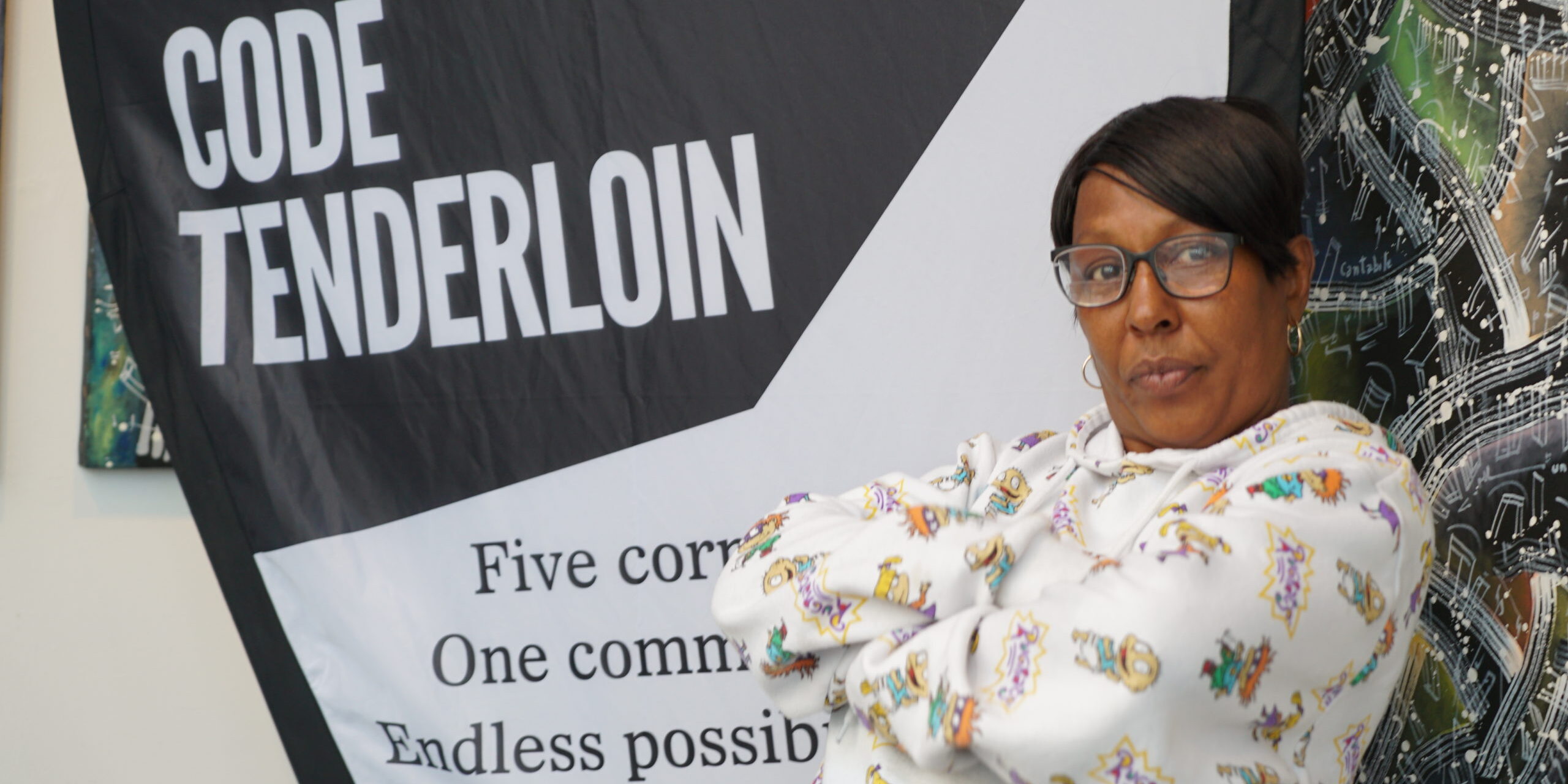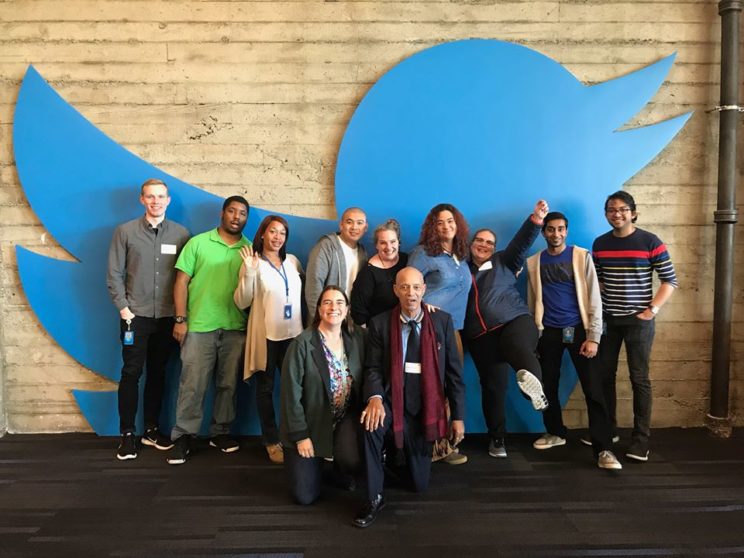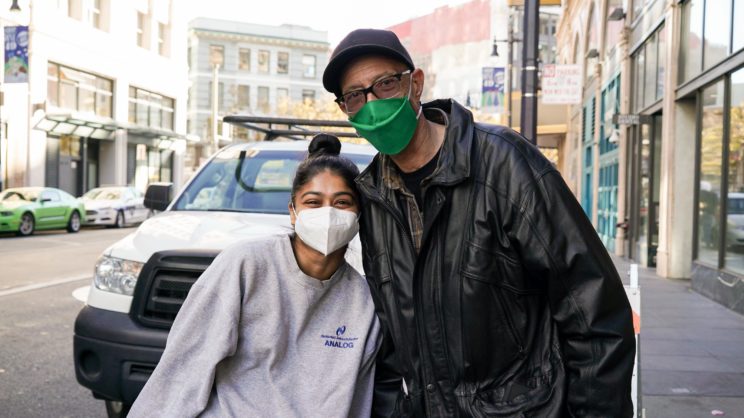
Code Tenderloin Finds its True Calling Amid Pandemic
Susan Kostal
Code Tenderloin wasn’t always a household name among the San Francisco mid-market technology companies. But Del Seymour was. A formerly incarcerated addict and dealer now known as the 'Mayor of the Tenderloin,' Del gave walking tours and shared the vibrancy, struggles, and dreams of those in the Tenderloin.
He started Code Tenderloin, a riff on 'Code Blue,' meaning a dire emergency, in 2015 from the back of his car, fixing and distributing laptops. Soon, his team offered daytime computer classes from a performing arts space in a bar on Taylor Street, Piano Fight. The goal is to help area residents gain skills to get jobs at the local tech companies—and not just as janitors.
They turned no one away. Growing in fits and starts, the group had “about thirty dollars in the bank” when it got its first director of development, Maria Judice. Soon, there was a lengthy New York Times profile, which called Seymour a “drawbridge” to the city’s “tech citadel.”
Then lightning hit, twice. First, the pandemic exacerbated the area’s housing crisis. Shelters closed, and tents sprung up everywhere. Those living in crowded SRO housing were at high risk. At ground zero, Code Tenderloin, which had become a trusted resource in the neighborhood, became one of the main sources for distribution of personal protective equipment—masks, gloves, sanitizer—for both housed and unhoused residents. And in many ways, Code Tenderloin found its true calling as an inner-city rapid-response team, able to help clients with almost any problem they brought to the door at Fifty-five Taylor Street.

Then, in August 2020, the relatively tiny group received $1.6 million from Square/Twitter CEO Jack Dorsey’s Start Small foundation. The money opened a wealth of possibilities, as well as pressure to steward the resource properly.
Code Tenderloin knew it needed legal help. A board member introduced them to the Bar Association of San Francisco’s Justice & Diversity Center (JDC) and Jay Lee, who runs the Community Organization Representation Project (CORP).
Founded in 2004, CORP’s launched the Racial Equity Partnership (REP) in the summer of 2020 to support Black-founded and Black-led community organizations. The goal is to build capacity among trusted providers. “We wanted to develop ways to encourage law firms to devote their pro bono resources to Black-led organizations that serve as a backbone for communities of color,” Lee said. Code Tenderloin was exactly the kind of organization CORP was designed to aid.
David Dedyo, a corporate partner with Perkins Coie in San Francisco, saw the opportunity to help Code Tenderloin in an outreach email from Lee. Given his work with tech companies, it seemed a natural fit. “This was just after George Floyd was killed,” he said. “I found myself, like lots of people, trying to figure out what I could do to help.”
In 2020, Code Tenderloin served 10,000 clients, and managed about a hundred daily volunteers. About a hundred people walk through their doors each day.
He knew he could put his skills to work helping Code Tenderloin negotiate with its fiscal sponsor, and laying the groundwork for Code Tenderloin to become its own 501(c)(3), which will ultimately give them independence from their fiscal sponsor and make direct fundraising easier. “This will give them more control over their resources, and help them better execute on their mission and business plan,” Dedyo said.
Though born of tragedy, the timing was perfect. “We have completely redesigned ourselves, because COVID has redesigned the world,” Seymour said. “Our mission and needs have changed, as those of the neighborhood have changed.”
In fact, Seymour sees many good things coming out of the pandemic. “The effects of COVID on the unhoused community has been a bonus. Funding for housing, sanitation, bathrooms—we fought tooth and nail to get these before, and the city has finally been coerced into giving us those things.”

Dedyo understood that Code Tenderloin needed unrestricted funding. “We have a very low bar for helping folks,” Seymour said. “If they can convince us of a need, we are very generous. Everything is a gamble.” In 2020, Code Tenderloin served 10,000 clients, and managed about a hundred daily volunteers. About a hundred people walk through their doors each day.
COVID-19 has also accelerated Code Tenderloin’s learning curve on how to handle the issues facing the unhoused, Seymour said. “I’m just honored that we were set up loosely enough that we were able to do a one-eighty in the middle of the freeway” and address COVID quickly and directly, he said.
Seymour is optimistic that life in the Tenderloin, where so many restaurants and bars are located, and where so many servers and cooks live, will rebound. “I see the light at the end of the tunnel,” he said.
Seymour and Judice have appreciated Dedyo’s cultural competency in working with them. Judice said Code Tenderloin has occasionally had a “disconnect” with others trying to help the organization. “Educating folks can be exhausting,” she said. But the Code Tenderloin team is “totally impressed with David (Dedyo), and his ability to understand the subjects we are talking about, to care, to listen to our frustrations about how we are trying to work, and how we need to protect ourselves legally,” she said.
Code Tenderloin is also taking advantage of other CORP programs, getting connected with legal clinics and getting help with HR issues, as it has grown from three to nine employees. The broader community is recognizing the groups’ evolution. Last year, Code Tenderloin was selected as a 2020 California Nonprofit of the Year by Assemblymember David Chiu.
Susan Kostal is a longtime legal affairs journalist. Based in San Francisco, she now serves as a writer and editor for lawyers and law firms. Most recently she served as Associate Director for News & Information at UC Hastings Law.
